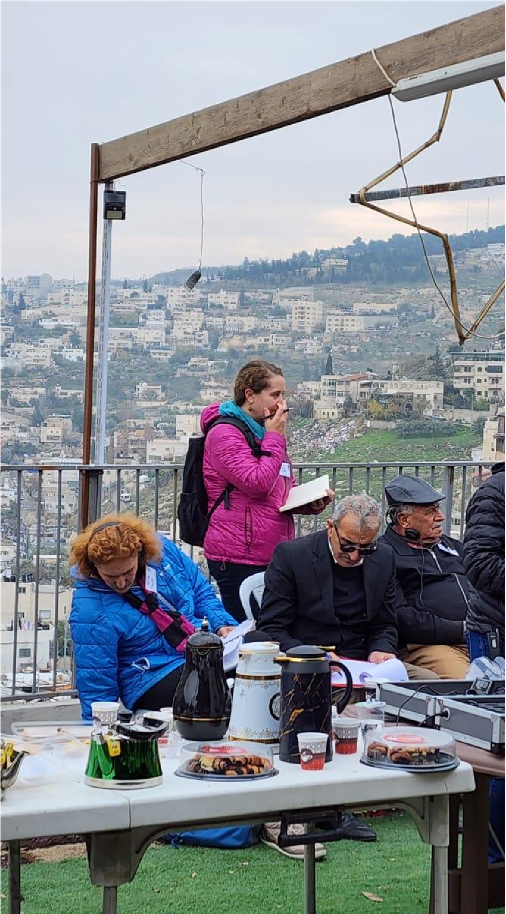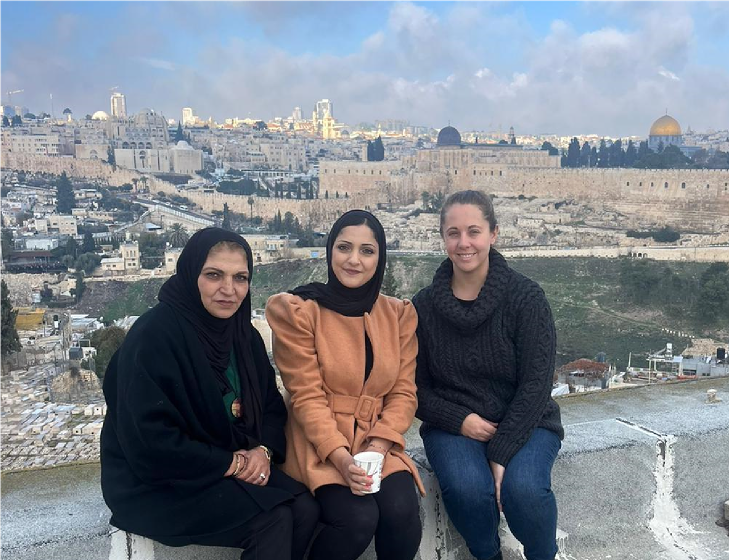From January 2023 through August 2023, Kellogg Doctoral Affiliate Alyssa Paylor (peace studies and anthropology) traveled to Israel and Palestine on a Kellogg Institute Graduate Research Grant to conduct research for her project, “Moral Geographies, Political Emotions, and Ethical Subjectivity in Israeli-Palestinian Performances of Reconciliation” Upon her return, she sent the following summary of her work.
 Scope of Grant Implementation
Scope of Grant Implementation
This report was submitted on 10/2/23 for funding received from the Kellogg Institute for International Studies. I proposed 12 months of fieldwork in Israel and Palestine to collect data on the following research questions:
- How are the emotions of reconciliation practitioners, bereaved activists, and audiences expressed and mediated in different reconciliation spaces?
- How do moral geographies in Palestine-Israel impact evaluations of emotional subjectivity, ethical capacity, and political capability?
My fieldwork period was from 9/5/22 to 8/31/23. As part of my observations, I noted aspects of the natural and built environment, for example in the image to the left, from 12/24/22 I am observing a visit to the Palestinian village of Silwan which is also claimed to be the location of the Pool of Siloam located in what is known as the City of David National Park in East Jerusalem. The visit was a learning and solidarity experience with Palestinian families from Silwan who are fighting to keep their homes from ideologically-motivated Jewish settlers, and who have active cases in the Israeli Supreme Court. The group I am observing was held under a 10-15 foot tall crescent and star that is lit at night so that the Jewish settlers directly across the valley on the other side of Silwan can see it. Correspondingly, the settler families have a Magen David (Star of David) and menorah that was lit at this time in celebration of Hanukkah, making competing spatial-visual claims to the valley.
Grant Results and Early Findings
During my fieldwork period, I lived in Bethlehem, West Bank, Palestine and conducted regular (average of 25-30 hours per week) participant observation with an Israeli-Palestinian peace organization located in Beit Jala, West Bank and Ramat Efal, Israel.
I conducted my observations primarily in Arabic, with some English. I collected over 500 pages of descriptive fieldnotes based on observations of weekly staff meetings, daily work activities, reconciliation and peace education programs, protests in Israel, and interactions with interlocutors affiliated with the organization. This grant made it possible to travel between my home and field sites, and complete over 80 interviews (average length 30-45 minutes) during this period of fieldwork.
I was particularly grateful to the Kellogg Institute for the flexibility this grant afforded me to use transportation funds to conduct interviews in the northern West Bank cities of Nablus, Jenin, and Bardala. Visits to these cities allowed me to collect rich data on the unique role of women in Palestinian national resistance and peace activism and their life histories.
 As of 10/2/23, I am continuing with transcription of my interviews and open-coding of fieldnotes. I anticipate analysis will be concluded by January 2024 and I will begin drafting a monograph dissertation of approximately seven chapters. I am presenting my findings at the American Anthropological Association and Middle East Studies Association annual meetings in November 2023, and the International Studies Association meetings in April 2024.
As of 10/2/23, I am continuing with transcription of my interviews and open-coding of fieldnotes. I anticipate analysis will be concluded by January 2024 and I will begin drafting a monograph dissertation of approximately seven chapters. I am presenting my findings at the American Anthropological Association and Middle East Studies Association annual meetings in November 2023, and the International Studies Association meetings in April 2024.





